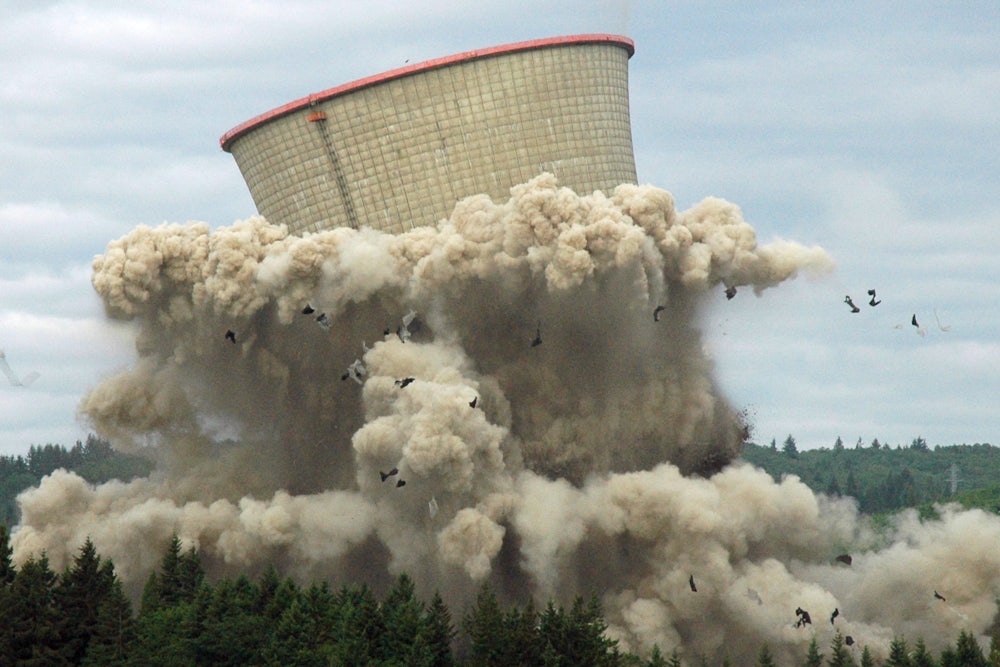Remember when people were all excited about the coming nuclear renaissance? About how the first new wave of reactors since the 1970s were on their way? It looks like the climate bill’s slow death in the Senate is putting all that in peril:
Constellation Energy and the French EDF Group say they’re committed to building an enormous nuclear-power plant next to the one Constellation already operates at Calvert Cliffs on the Chesapeake Bay. But the $9 billion project looks less and less certain with each month that goes by. ...
The project could be doomed by Congress’ refusal to pass climate-change legislation. “We know we don’t have the votes,” Senate Majority Leader Harry Reid told reporters 10 days ago.
Any climate-change bill worthy of the name would tax carbon-dioxide emissions or cap them and allow emission-permit trading. Either setup would have rendered electricity from traditional, carbon dioxide-intensive coal more expensive and carbon-free nuclear kilowatts more competitive. But if coal electricity won’t be penalized, building nuclear plants is much less attractive for investors such as UniStar — even with government-backed financing. And if Reid doesn’t have the votes to pass a climate-change bill now, when Democrats control both House and Senate, he or his successor is unlikely to have them for years to come.
One theory that’s gained popularity on the right of late has been that businesses aren’t investing because of regulatory uncertainty. The liberal Congress is making them nervous. My colleague Jon Chait has showed why this explanation doesn’t add up—for the most part, the lack of investment is due to the exceptionally bleak recession and weak consumer demand. But I’d throw in a twist here. If there’s one area where the uncertainty theory really does hold up, it’s in the power sector.
Utilities need to make planning decisions on a very long time horizon—a power plant approved today will stick around for decades. And that creates a problem. Most utility executives understand that climate change is a genuine concern that’s going to be addressed sooner or later. If not this year, then maybe five years from now, or ten years, or 15 years. And so a coal plant that looks cheap today may be a real liability 20 years from now if Congress later decides to regulate carbon. But utilities are taking risks investing in clean alternatives like nuclear or solar unless they know exactly when the carbon cap will take effect. As a result, there’s a lot of stalled investment in the power sector right now.
This isn’t some arcane theory on my part. Just listen to what utility executives are saying. Here’s Lewis Hay of Florida’s NextEra Energy: “There’s a lot of capital sitting on the sidelines just waiting for more regulatory clarity.” Here’s Ralph Izzo of PSEG: “PSEG is ready to make significant investments that would help combat climate change, but we need the regulatory certainty that the passage of this legislation would provide.” A Peterson Institute study found that annual investments in the power sector would go up 50 percent in the next ten years if a cap on carbon was passed. But until that happens, a lot of those big energy projects that conservatives are so fond of—nuclear reactors, coal capture, electric cars—are going to be stuck in limbo.
P.S. Note the sentence in bold above. Even federal loan guarantees for nuclear projects—an energy idea beloved by nuke enthusiasts like Lamar Alexander and John McCain—might not be enough to salvage the Calvert Cliffs project. Government subsidies just don’t pack the same punch as a market price on carbon pollution. (The GAO recently reached a similar conclusion about carbon-sequestrating coal plants.)
(Flickr photo credit: snowbeard)
